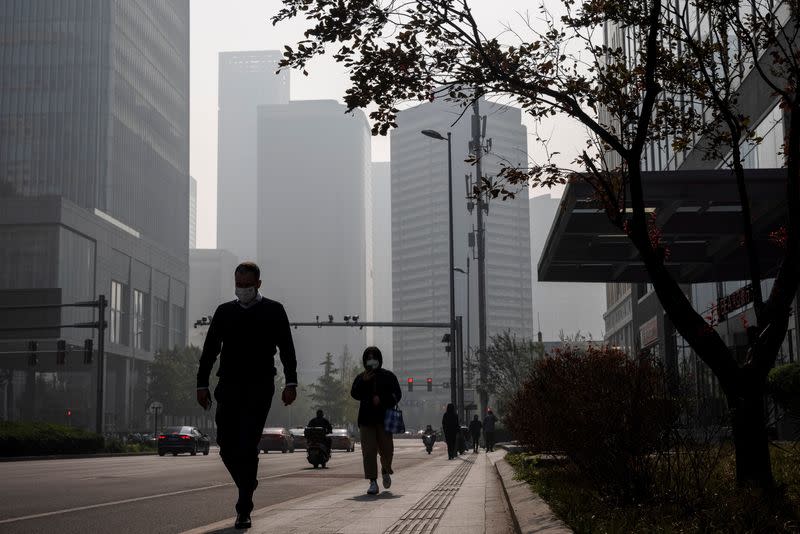China’s top financial regulators have reminded business people that they face strict and tough supervision. Companies must abide by market rules and avoid corruption and “excessive” or “reckless” risks, they said.
In an article on Tuesday in The People’s Daily, the communist party’s official newspaper, the Central Financial Commission and the Central Financial Work Committee vowed to maintain a campaign to ensure the sector adheres to party values and serves the economy.
President Xi Jinping has shown dissatisfaction with the $63-trillion financial sector, taking steps in his third term to boost the party’s ability to set its direction by creating party entities such as the Central Financial Commission.
ALSO SEE: China Chops Mortgage Benchmark Rate to Boost Property Market
CCP’s goal: To be a ‘socialist financial powerhouse’
“The financial powerhouse we want to build is a socialist financial powerhouse under the leadership of the Chinese Communist Party,” the party’s top financial policy body and ideology taskforce said in an article in the People’s Daily.
“Stable financial development is guaranteed by strict and tough supervision,” added the article, jointly attributed to the office of the Central Financial Commission and the Central Financial Work Committee.
It also exhorted market players “to not act recklessly” and “establish a correct outlook on business, performance and risk, to avoid excessive risks beyond their ability to bear.”
The remarks came as top party officials have yet to concede to an all-out rescue plan in the face of a stock market sell-off, excessively leveraged developers and local governments that have accumulated about $13 trillion in debt.
Instead, they maintain that a socialist economy can work as long as market players do not step out of line.
Although the world’s second-largest economy hit its target for growth of about 5% last year, analysts say officials will need to revive market-oriented reforms to stop it from slowing to about 3% a year, which would feel like an economic recession.
In 2022, Xi laid out a long-term vision of “Chinese-style modernisation”, with a goal of doubling the economy by 2035 that government economists say calls for average annual growth of 4.7%.
Recent months have seen some former senior finance officials expelled from the party or charged with bribery, as Xi’s anti-graft drive works its way through the sector.
“We are determined to win the battle against corruption in the financial sector,” the watchdogs added, while telling financiers to “abide by market rules and professional ethics.”
They warned financiers to “focus their innovations on service to the real economy and not engage in self-inflated pseudo-innovation”.
- Reuters with additional editing by Jim Pollard
ALSO SEE:
China’s Focus on Infrastructure, State Industry Squeezing Families
China Saw 5.2% Growth Last Year, But 2024 Likely to be Tougher
Ex-Bank of China Chairman Expelled From Communist Party
Second Shadow Bank Rocked by China’s Property Crisis
China Wealth Manager Zhongzhi Admits to $64 Billion in Liabilities
China Asks Banks to Roll Over $13tn Local Debt at Lower Rates
China’s Private Real Estate Giants Teeter Near Collapse
























